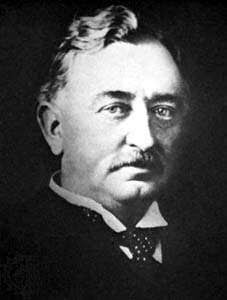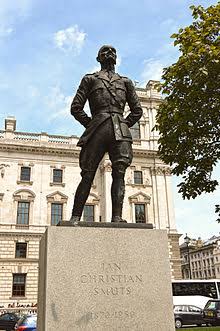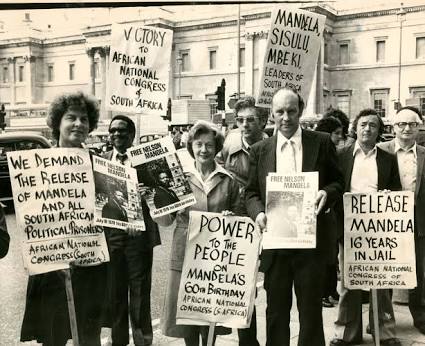
The year was 1978. The young Tilbrook had just left school and started university, just like some of the boys and girls on tour will be this autumn. It was the 1970s. It was University College, London. I came form a Labour Party background. Me and my friends were pretty left-wing I suppose. So, if you will indulge me, I thought I’d start by tell you about my part in the struggle against oppression in Southern Africa.
Picture a late ‘70s university meeting room (come on, some of you are old enough to). A group of earnest young people being addressed on the rightfulness of the liberation struggle (in truth, I remember nothing about who gave the speech or a word they said, which probably says it all). At the end, we all pledged our solidarity with our black African comrades in the liberation struggle. We cheered when the name of the leader was mentioned, heartily. Yes, we cheered Robert Mugabe.
Well, you can’t win them all (though Mugabe won most, and at most Zimbabwean people’s terrible expense). There was more. I didn’t bank with Barclays (we were boycotting them because of their interests in South Africa), and I didn’t buy South African apples (though I never liked Granny Smith’s anyway). I bought Free Nelson Mandela. Heroic stuff, eh?

But it does make a point. When I was growing up, South Africa was a significant issue, and played a major part in British national politics. How did we get there? What good did it do? What now?
In one sense, when I write about us I don’t mean us at all. I mean Britain, and the West. And that means, in part, us today. I also mean history, of course.
In the first place, British history is indelibly bound to the history of south Africa, since Britain took Cape Colony from the Dutch. Before then, of course, the Dutch left their indelible mark. So did so many Europeans: the 18th and 19th centuries saw the coming of waves of white Europeans.
By the turn of the 18th and 19th centuries, it was the British who were in control. They were to shape a great deal of South Africa’s subsequent history. Under British rule, the Black African rulers were subdued, notably in the Zulu Wars. Zulu migrant workers were forced into the mines. White dominance was thus ensured.
But it was never that simple. There were trekboers before the Great Trek, but the Great Trek itself was largely a reaction to the British authorities abolition of slavery. Britain granted freedom of religion, breaking the monopoly of the Dutch Reformed Church. Some of those Protestant groups, including Lutherans and Anglicans, had a missionary impulse which would also manifest itself in a regard for the rights of blacks and coloureds. Islam flourished.
There was also substantial British immigration, and British economic interests flourished. This was especially true once diamonds and gold were discovered from the 1860s on. At the same time, Britain increasingly feared its European rivals. The defeat of the Zulus was to guard the Cape. Distrust of the Boer Republics stemmed from a fear that they would damage Britain’s interests in the mines, but also from fear of German ambitions.

There was also imperialism. The mining magnate, and Cape prime minister from 1890-96, dreamt of an empire that crossed all of Africa (and a railway line, that’s why I’ve always had a soft spot for him). In 1899-1902, the Boer War saw Britain enforce the creation of a unified South Africa, under British rule. By then, the white dominions of the British empire (Canada, Australia and New Zealand) had self-rule in various sorts. Britain chose to unite South Africa. The victims were South Africa’ s blacks, coloureds and Indians. The poverty, migrant workers and townships were not the creation of apartheid.
 South Africa showed its importance to the empire in both world wars. Simon’s Town was important in both. In the first, South African soldiers played a key role on the western front; in both wars in Africa. Jan Smuts was the only man, aside from Churchill, to serve in the war cabinet in both wars. There is a statute of him in Parliament Square, outside the Houses of Parliament, next to Lloyd George.
South Africa showed its importance to the empire in both world wars. Simon’s Town was important in both. In the first, South African soldiers played a key role on the western front; in both wars in Africa. Jan Smuts was the only man, aside from Churchill, to serve in the war cabinet in both wars. There is a statute of him in Parliament Square, outside the Houses of Parliament, next to Lloyd George.
For all that, there ia half-decent argument for saying that before 1932, Britain had settled for a policy of benign neglect as long as the gold came in, Simon’s Town naval base was secure, white Brits were happy and things were quiet.
The rise of Afrikaner nationalism and the wars changed that. I have written here about the rise of Afrikaner nationalism, and the German influence upon it here. German influence was hardly new, but for Afrikaners opposed to British rule and the war, ‘thirties vintage Nazi Germany had its appeal.
Nationalism was a European idea in origin. By 1945, it had spread and would prove uncontrollable. I have written here about the origins of black nationalism and the ANC, but liberation movements throughout the world had their appeal on the left.
For the British government, that would in the end mean the end of empire, as it was. For Britain, the model was the white dominions. By 1932, the five white dominions (Canada, Australia, New Zealand, South Africa and the Irish Free State) had effective independence under the crown. They were part of a Commonwealth, a kind of empire-lite.
That would mean independence for black Africa. What then of South Africa’s blacks? Consistently, the British had urged the easing of discrimation in South Africa, and the advance of black and coloured rights. Famously, at Cape Town in 1960, the British prime minister, Harold Macmillan The South African parliament that a wind of change, in the form of black African nationalism, was sweeping the continent.

The Winds of Change speech fell on deaf ears. Macmillan should have known. Since Malan had come to power, the British had tried to restrain him, with little noticeable effect. When Verwoerd was prime minister, South Africa became a republic in 1961: Britain had no formal role.
Apartheid South Africa presented a dilemma to West fighting a Cold War. Despite their pro-German lineage, the regime portrayed itself as a bulwark against communism and pro-Western. Many in Whitehall and Washington bought that. Meanwhile, the West was also courting new born black African ex-colonial states, who were also being wooed by the Soviet Union. Those states felt a genuine repugnance towards apartheid: the West’s ambivalence about South Africa was a useful stick to beat them with (or useful to wring out concessions in other areas). Britain also wanted a Commonwealth now dominated by non-white governments to work.
Britain’s position was also complicated by the situation in neighbouring Rhodesia (now Zimbabwe). Ian Smith’s whites-only government aped South African apartheid (to a ore limited extent). Fearing that Britain, as the colonial power, would force reform. Smith aped his neighbour again by declaring independence. Britain, as the legal colonial power, felt a legal and moral responsibility for Rhodesia.
Then, there was British politics. On the Labour side, there was universal opposition to apartheid.

The question was, what to do about it. For the Conservatives, the issue was much more difficult. The party had always had a strongly imperialist wing. In the years after the Second World War there was a wave of emigration to South Africa and Rhodesia, many of them farmers and businessmen, all with strong ties to (Conservative) home. Many Tory MPs had links with South Africa: personal, business and political. Some were, to be frank, outright racist.
Most were not. But even then, British business, and many of their constituents had interests in South Africa. And South Africa bought British arms.
 On the left, apartheid was an issue around which the left and liberals could unite. It represented a clear and unambiguous moral evil, and one which every one on that side of politics could agree. That is not to decry the significance of the anti-apartheid movement. It protested, boycotted. Without it, arguably, the sporting boycott, the sanctions imposed by Western governments and the pressure applied by business would never achieve what it did in the 1980s (see the article to come). It also gave succour to the regimes opponents in South Africa. The first black Anglican archbishop of Cape Town, Desmond Tutu became a figure of international renown (he won the Nobel Peace Prize in 1984).
On the left, apartheid was an issue around which the left and liberals could unite. It represented a clear and unambiguous moral evil, and one which every one on that side of politics could agree. That is not to decry the significance of the anti-apartheid movement. It protested, boycotted. Without it, arguably, the sporting boycott, the sanctions imposed by Western governments and the pressure applied by business would never achieve what it did in the 1980s (see the article to come). It also gave succour to the regimes opponents in South Africa. The first black Anglican archbishop of Cape Town, Desmond Tutu became a figure of international renown (he won the Nobel Peace Prize in 1984).
By the mid ‘eighties, when the Specials released their single and held a concert at Wembley stadium, which was seen worldwide on TV, the call for Mandela’s release and the end of apartheid had reached a crescendo. The anti-apartheid Movement didn’t end apartheid, but it played a part.
At least I bought the single.
What now? Cape Town university and Oriel College, Oxford, used to share something in common: statutes of Cecil Rhodes.
The Rhodes we have mentioned before: the mining magnate, arch-imperialist and one time (white-only) Cape prime minister. He was also Oriel’s primary source of funds; he also funded the Rhodes scholarships that enable students from all around the world to do post-graduate study at Oxford (former Rhodes scholars include Bill Clinton). In 2015, Cape Town students campaigned, successfully, to have Rhodes’ statue removed. Some their Oriel counterparts followed suit, without success.
For them, the statues were a celebration of colonialism, which they see as another of those unambiguous evils. Lest you think that all this is some kind of historians storm in a tea cup, look at recent history. ISIS destroyed godless Palmyra.
South Africa has had its own turmoils. There has been terrible misgovernment: Mandela’s successor, Thando Mbeki, stopped the fight against AIDS by claiming it had nothing to do with HIV. Jacob Zuma was fantastically corrupt, and threatened to play the race card. We saw this in Cape Town.

There has been mass immigration from Mugabe’s Zimbabwe, and the failing states beyond. The economy has gone backward, unemployment stands at 26%. There is something of a white flight. Radicals agitate for policies similar to Mugabe’s.
Should we care? I hope the past two weeks in Africa’s largest and strongest democracy has convinced you we should.
And here they are:




